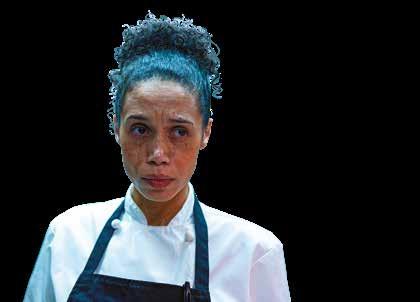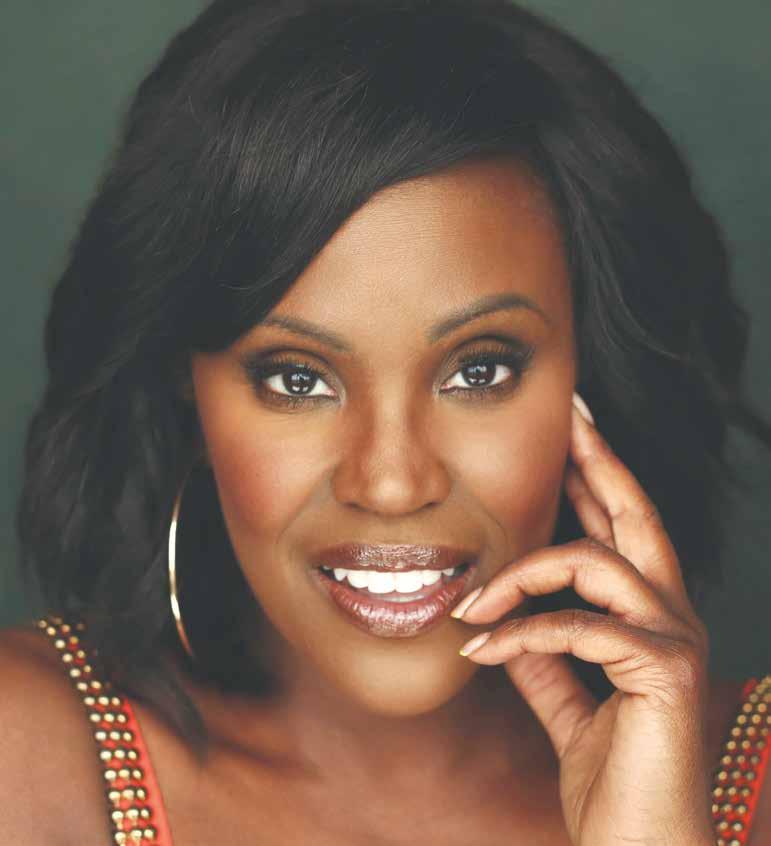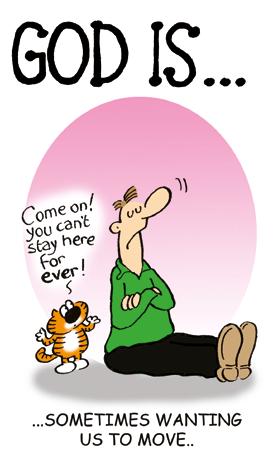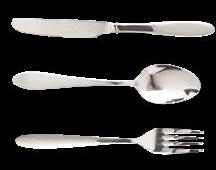WAR CRY
Author explains how living without shame is possible 30 September 2023


Author explains how living without shame is possible 30 September 2023

Singer and TV star Kelle Bryan reflects on her harmonies, hardships and hopes

The heat is on for chef in TV drama


The Salvation Army is a Christian church and registered charity seeking to share the good news of Jesus and nurture committed followers of him. We also serve people without discrimination, care for creation and seek justice and reconciliation. We offer practical support and services in more than 700 centres throughout the UK. Go to salvationarmy.org.uk/find-a-church to find your nearest centre.
The Salvation Army first published a newspaper called the War Cry in London in December 1879, and we have continued to appear every week since then. Our name refers to our battle for people’s hearts and souls as we promote the positive impact of the Christian faith and The Salvation Army’s fight for greater social justice.
Issue
Editor: Andrew Stone, Major
Deputy Editor: Philip Halcrow
Production Editor: Ivan Radford
Assistant Editor: Sarah Olowofoyeku
Staff Writer: Emily Bright
Staff Writer: Claire Brine
Editorial Assistant: Linda McTurk

Graphic Designer: Rodney Kingston
Graphic Designer: Mark Knight
Email: warcry@salvationarmy.org.uk

The Salvation Army

United Kingdom and Ireland Territory 101 Newington Causeway London
SE1 6BN
Tel: 0845 634 0101

Subscriptions: 01933 445445 (option 1, option 1) or email: subscriptions@satcol.org
Founder: William Booth
General: Lyndon Buckingham
Territorial Commander:
Commissioner Anthony Cotterill
Editor-in-Chief: Major Julian Watchorn
TO those being entertained, the world of showbiz can seem glamorous and exciting. Those doing the entertaining may be imagined as ‘living the dream’. Sometimes, though, the dream that’s being lived can seem more like a nightmare.


Kelle Bryan, who is now one of ITV’s Loose Women panellists, joined the girl group Eternal when she was only 15. In an interview in this week’s War Cry she remembers some of the highlights of her time in the group but is also candid about how tough life in the spotlight can be.
‘We were away for huge amounts of time,’ she says. ‘And there was also a bit of bullying going on, so it was hard.’ She also describes how she has been with living with lupus disease, an incurable condition that can cause joint pain, fatigue and skin rashes.
Of course, it’s not only people in the public eye who can face tough times through ill health or from bullying. Also in this week’s issue we speak with Tracy Williamson, who was bullied and abused as a child. She describes some of that abuse and the impact it had on her.
‘I was shouted at that I was rubbish and shouldn’t have been born,’ she says. ‘I felt this desperation and had a realisation that I wasn’t able to move forward in my life.’
Tracy goes on to describe how she reached a point of such desperation that at one time she tried to take her own life.
Although the lifestyle and nature of the challenges that Kelle and Tracy experienced were different, they both lived through tough times. What the two women have in common, though, is that their Christian faith has helped them to discover a new and better life.
‘There is always hope in God,’ Tracy affirms, before adding: ‘To everyone who is struggling with life wounds and deep hurts, I would say that God loves you, he’s there for you.’
BEEF joints are roasted, sauces whisked to perfection and dishes carefully plated against the backdrop of a loud and chaotic kitchen. In BBC1’s new drama series Boiling Point, which begins on Sunday (1 October), viewers get a behind-the-scenes window into the fast-paced nature of running a restaurant.
Head chef Carly (Vinette Robinson) is under pressure. Tonight, her new restaurant, Point North, is welcoming potential big money investors to dine. It’s also a night when the restaurant has had a lot of walk-ins, and is full. ‘Everything needs to be perfect,’ she tells her maître’d Dean (Gary Lamont).

While she’s not really sure whether there will be enough staff for the shift, she reassures her sous-chef Freeman (Ray Panthaki) that as long as they’re together, the night will go well. ‘You and me, dream team,’ she says.

As banter and camaraderie are batted across the kitchen, Carly keeps her lively team on track and motivated to make the best impression on the investors, even though it’s an extremely busy night.
‘Word is getting out there, and that is because of every single one of you guys, your food, your dedication, your passion on those plates,’ she tells them. ‘I am so proud of you. Keep pushing forward and let’s do what we do!’
Spirits are high, but heading up the team becomes more challenging for Carly when her phone keeps ringing. And to add to that, a worker in the kitchen has turned up for his first shift –but it appears he doesn’t know what he’s doing. It’s a recipe for disaster.
us have faced stresses in our own lives. We may find that we crack under the pressure – either saying things that we later regret or struggling to cope.
As tensions flare in the kitchen, a distracted Carly tries to keep her cool, but there are fires to put out in her work and home life. The kitchen and serving staff have respect for one another and work well as a team, but they are all trying to do a tough job, while dealing with their own personal issues. Time is of the essence and will reveal whether everyone can stand the heat in the kitchen.
Whether at work or at home, most of
Christians have found that their faith can support them when they encounter life’s difficulties. They can ask for God’s help to respond to situations in a way that won’t stir up more trouble. One Bible writer assured people who had recently come to faith that by choosing to live God’s way, they would receive God’s Spirit, who would develop certain good traits in them. ‘The fruit of the Spirit,’ he said, ‘is love, joy, peace, patience, kindness, goodness, faithfulness, gentleness, self-control’ (Galatians 5:22 and 23 English Standard Version).
When we put our trust in God, the change in us may not always be instant and we may still struggle at times, but he promises never to leave us, even when we get ourselves in a pickle.
In a fast-paced, pressure-cooker world, we may find that faith is the missing ingredient.
A MAN walks into a pub – and finds that it doesn’t sell booze. This isn’t the set-up for a joke, but introduces a story I saw on the ITV News website about an alcohol-free pub in Weymouth, which, according to the report, is a hit among local people.
The article goes on to say that the Dry Dock offers all the conventional features of a traditional pub, such as a pool table, dartboard and a weekly quiz. But unlike a ‘regular boozer’, it serves non-alcoholic wine, beer and cider along with soft and hot drinks.
Sam Watson, who opened the pub, explained that the venture had received a positive response from the public. The Dry Dock’s website points out that, as well as being a sober pub, it hopes to support people in recovery, those with mental health issues and the whole community.
‘I want to see this sort of project in other towns,’ said Sam, a recovering alcoholic, who believes that the pub is attracting punters who want to improve their mental and physical health by drinking less. ‘The sober revolution is upon us.’
As a non-drinker myself, I love the idea of finding a place that creates the atmosphere and benefits of a pub, but without the booze bit. I’m a firm believer in the saying that you don’t need to have a drink – or get drunk – to have a good time. I never feel that not having alcohol is causing me to miss out.
Though some might consider it unusual, my decision to steer clear from alcohol stems from my Salvation Army upbringing. Since its early days, the Army has helped people whose lives have been destroyed by alcohol addiction. Today, the church and charity continues to promote being tee-total as a way of standing in solidarity with those who struggle with alcohol dependency and those affected by alcohol abuse.
Don’t get me wrong. I know that not everyone who drinks is (or becomes) an alcoholic. But I hope people are able to see –through non-drinkers and the example of a thriving, sober pub in Weymouth – that a life free from booze can be joyful, fulfilled, liberating and, most of all, possible.
INTERNATIONAL football star Ronaldo announced his baptism on Instagram. The Brazilian, who played for Real Madrid, AC Milan and Inter Milan and has 30 million followers on the social media site, shared a picture of himself with his head bowed, being baptised over the font.

In his caption, he wrote: ‘Today is a very special day. I was baptised! The Christian faith has always been a fundamental part of my life since childhood, although I had not yet been baptised. With the sacrament, I feel truly regenerated as a child of God –in a new, more aware, deeper way.’
Do you have a story to share?
warcry@salvationarmy.org.uk a
@TheWarCryUK
TheWarCryUK

salvationarmy.org.uk/warcry
Life free from booze can be joyful
THE Salvation Army is asking people to buy, wear and share pictures of themselves wearing a temporary tattoo to spread awareness of modern slavery. The tattoos, which are available to buy ahead of Anti-Slavery Day on 18 October, feature a barcode to symbolise how slavery treats people as objects that can be bought, sold and exploited. A tattoo can be bought for £1 online at sps-shop.com/asd-tattoo. All proceeds go towards The Salvation Army’s Survivor Support Fund, which provides vital additional support to help survivors of slavery move on with their lives. Pictures of people wearing the tattoo can be shared online with #WeAreNotForSale, tagging The Salvation Army UK.

PRISON inmates in Guernsey have started volunteering at The Salvation Army’s community centre and café in St Sampsons.
THE Archbishop of Canterbury has described the decline of religious faith in Britain as ‘not all bad’, as he responded to a survey which revealed that out of 1,200 Church of England priests, just 24 per cent felt that Britain could still be called a Christian country.
According to The Times, the Most Rev Justin Welby referred to the recent survey – which was conducted by the newspaper – during his speech at the BritishIrish Association’s annual conference, saying: ‘Christian and all religious faith has declined dramatically. I should be clear that this is not all bad, for churches are ruined when wealth and power lead them to self-reliance. I rejoice in less of a bossy attitude, and of the church stepping back from telling everybody what to do, here and elsewhere.’
Offenders from Les Nicolles Prison help with painting, decorating and maintenance or work in the kitchen as part of a government initiative to prepare them for their release.
Jonathan Gallagher, the community centre manager, said: ‘We value our volunteers from Les Nicolles Prison and
many of them come with a vast range of skills. We do our best to fill their time with meaningful activities that play to their skills, but also give them opportunities to try new things.
‘Ultimately, they will want to get into paid work when they are released, so we do everything we can to help them prepare for this. Our involvement is to provide a safe, caring environment for them to rehabilitate into after spending time in the prison system.’
ALMOST a quarter of UK shopping staples are at risk because of climate change, a Christian Aid report has revealed.
The organisation’s research published in Cooking up a Storm has found that 22 per cent of the fruit, vegetables, pulses and meat products used by households in the UK originate from countries vulnerable to the climate crisis. It says that supplies of staples such as bananas, grapes, avocados, coffee and tea may be disrupted and that their prices may rise.

It believes the UK government should work with others to help vulnerable communities round the world adapt to climate change.
Patrick Watt, Christian Aid’s chief executive, said: ‘The UK may be an island but in an ever more interconnected world we cannot escape the damage caused by climate change. Our record on carbon emissions has helped cause the climate crisis. Farmers in some of the world’s poorest countries are now struggling to cope with droughts, storms and rising temperatures.
‘The climate crisis is increasingly disrupting the supply chains of the food in British shopping baskets and risks adding to the cost of living crisis.’
decline
‘not all bad news’
TRACY WILLIAMSON was abused as a child. On top of the physical abuse, the words spoken to her left lasting scars that meant she grew up feeling ashamed. Through an encounter with Christians, who helped her discover God’s love for her, she overcame that shame and found freedom. Now she has written a book to help others to experience the same
Interview by Sarah Olowofoyeku‘STICKS and stones may break my bones, but words will never hurt me’ has often been offered as a proverb to help children stand up to their bullies. But sadly, it is not usually true. Physical abuse certainly wounds, but verbal abuse can also have far-reaching effects. Words said about us from a young age have the power to shape the way we view ourselves.
When Tracy Williamson was a little girl, she experienced verbal abuse, which contributed to her growing up with a strong sense of shame.
‘I was shouted at that I was rubbish and shouldn’t have been born,’ she says. ‘The words that I heard would often bombard my thoughts.’
By the time she was 18 years old, she had reached breaking point.
‘I felt this desperation and had a realisation that I wasn’t able to move forward in my life. I had tried talking to other people, I’d written to magazine agony aunts when I was at school, but















 Tracy Williamson
Tracy Williamson
none of them had been helpful. At 18 I didn’t know how to take the steps to talk to a counsellor.
‘One day when I passed a vicarage I felt drawn to go and talk with a vicar, but he was dismissive and didn’t know how to help. It felt like the end of the road to me, that there wouldn’t be any more hope. Shortly after that I made a suicide attempt.’
Soon after reaching this point of desperation, Tracy encountered a girl at college who was a Christian and who talked with her about God’s love.
‘I asked more questions of the girl and other Christian students at the college,’ Tracy says. ‘I became a Christian and through starting to go to a church, hearing the Bible being taught, receiving prayer and especially through hearing God’s voice of love for me, I started to come into that place of leaving shame behind.’
To help others in similar situations, Tracy has written a book, Unashamed

In it, she uses her own experience to offer practical and spiritual ways to enable people to move from living ashamed to living unashamed.
The book is set out in short sections – which include moments for reflection, stories and more. Tracy explains why she structured the book in such a way.
‘I’m not a hugely intellectual person. But I read non-stop. I like to read some points and then be able to think about them. So when I started writing my own books, I wanted to write so that people could have an opportunity to reflect.
‘I feel stories are important because if it’s just teaching points and there’s no story to back it up, it can seem a bit unreal sometimes. So I wrote the book from the point of view of my own story, and other people’s stories.
‘There are teaching points on things such as rejection and fear, and hearing God’s word of truth about ourselves. Each chapter ends with a reflective note
There is always hope in God
and God’s response.’


Tracy also includes descriptions of ‘prophetic pictures’, which she explains as ‘visual impressions’ that Christians may get in their minds.














‘In the book, I write about simple little pictures that came to me. One of them is seeing someone trying to walk along a path and suddenly they’re stuck in the mud. It was to do with someone who felt stuck in life and was being sucked into a big mess. People can respond and say to God: “This applies to me. Please help me, I want to get through this.”’
With God’s help, Tracy pushed through the difficult circumstances of her life. Since the mid-1980s she has been working with the ministry team MBM, delivering God’s message of love and freedom with hundreds of people up and down the UK through her speaking and writing. Her message to anyone reading the book, who may have reached the point of desperation and hopelessness that she reached at age 18, is: ‘There is always hope in God.’


She says: ‘I quote Psalm 139 several times in the book. It talks about the fact that God knew us before we were born, he formed us in the womb. So many people have grown up with shame because of the feeling that they should never have been born, that they were a mistake. Sometimes their parents have told them that. But God says different. He says that before he even created the universe, he wove us together.
‘To everyone who is struggling with life wounds and deep hurts, I would say that God loves you, he’s there for you. He wants to affirm you, be a Father to you, to provide and care for you, and he can and will take away those wounds.’
THERE’S no doubting the power of the woman that is Kelle Bryan. In the 1990s, she found fame with Eternal, the girl group whose hits reminded fans that they were blessed, always and forever. By the Noughties, she was championing the talent of other artists through her own company, Advocate Agency. In 2018, she turned her attention to yet another new role, playing Martine Deveraux in the Channel 4 soap Hollyoaks. Today, she is a popular panellist on ITV’s Loose Women, where she chats through news stories of the day with honesty and compassion and a faith perspective.
‘Whatever work I’m doing – whether it’s Loose Women, acting or working in

business – my Christian faith plays a massive part in underpinning who I am,’ Kelle tells me over Zoom, just a few weeks before embarking on a Loose Women tour. ‘It’s the central hub of my decision-making. If a job comes up which I’m not sure about, I’ll talk to my bishop and we will pray about it. I need the reassurance to know that I am hearing from my Father God and I’m heading in the right direction.’
of them speak candidly about difficult experiences they have faced in the past. Sometimes, Kelle talks about her work as an actress or her battle against the autoimmune disease lupus. Occasionally, she will reflect on her experience of the music industry. Today, I begin our conversation by asking her to reflect on some of her overriding memories of being in the R&B vocal group Eternal.
Frequently, as Kelle and her Loose Women colleagues discuss the day’s hot topics in front of a studio audience, conversation turns to the lives of the panellists themselves, and many
‘One of the massive moments was performing with Whitney Houston at a 16th birthday party for the daughter of the Sultan of Brunei,’ she says. ‘It sounds a bit random, but the Sultan wanted to do something really special for his daughter, so he decided to
 From left: Vernie, Kelle, Louise and Easther formed the group Eternal
From left: Vernie, Kelle, Louise and Easther formed the group Eternal
Singer, actress and Loose Women panellist KELLE BRYAN reflects on the highs and lows of being in one of the UK’s most popular girl groups, the years of health difficulties that followed, and the love of God, who always gave her the strength to keep going
fly in all of her favourite things. When we got to his house, I can remember thinking that it was very opulent. Everything was gold. I’d never seen wealth like it.
‘Another standout moment for me took place in South Africa, where we performed in the first big show to mark the abolition of apartheid. I guess we were invited because we were an interracial band, so we signified unity. I can remember the event vividly. There was a sea of people, all holding banners which said “Free at last”. It was starkly different from the
banners that we were used to reading, which said things like “We love you Kelle” or “We love you Louise”. That day was an amazing experience.’
Despite the joys of life in the spotlight, Kelle admits that some of her time in the band was challenging. She missed her family when travelling away from home.

ones, chat about it, have a cuddle, then feel ready to go back and deal with the problem the next day. But Eternal wasn’t like that. We had to go back to an empty hotel room. And in those days, no one really had mobile phones. It was quite isolating.
‘Another struggle was that I was only 15 when I joined the band, so I missed out on a lot of normal teenage stuff. I didn’t fly the nest to go to university where I’d cook
‘We were away for huge amounts of time,’ she recalls. ‘And there was also a bit of bullying going on, so it was hard. Usually, when you’ve had a bad day at work, you can go home to your loved Turn to page 10 f
From page 9
beans on toast and find my way as an adult. I had to find my way while living in a difficult environment.’
One of the toughest times Kelle faced in her music career took place in 1998 when she received a fax, telling her that her days in the band were over. Hearing that she had been fired came as a nasty shock – and one which took her a long time to process. I ask her if, 25 years later, she has finally made peace with how things were handled.

‘Definitely, because that was then and this is now,’ she says. ‘And I am
who I am today because I went through that situation. It helped me to become a stronger person and more compassionate to others, because I feel I can see where they are coming from.
‘In terms of the other girls in the band, Louise and I are in good contact these days, and Easther never fails to send me a message on my birthday. So yes – I’d say my life has moved on, I’ve recovered, I have a lovely career now and it’s all water under the bridge.’
One of the things that helped Kelle as she adjusted to a new life post-Eternal
was her belief in God, to whom she refers as Father. On the hardest days, he gave her strength and peace to keep going. She tells me how she came to faith in the first place.
‘I was raised as a Christian, went to a Pentecostal church as a child and had a very strict upbringing,’ she explains. ‘No dresses, no make-up and no secular music. It was a harsh type of Christianity that was presented to me, so when I was 13 years old, I rebelled against it. I got a boyfriend and was out!
‘But then, in my early 20s, I began to
develop my own, personal relationship with Father – and it was amazing. When I left the band, I went through one of the lowest moments of my life. My health took a turn for the worse. My parents were going through a divorce. And yet that’s when my relationship with Father became tangible, rather than just something I’d heard other people talking about. I wouldn’t have made it through those years without his direction and help.’
In 1999, as Kelle was in the early stages of pursuing a solo career, she became seriously unwell and underwent a number of medical tests to determine the cause. After weeks in hospital, she was told by doctors that she had lupus, an incurable disease that can cause joint pain, extreme fatigue and skin rashes. It was a diagnosis that would change her life.


‘I lost my hair, developed ulcers, found it difficult to move and also suffered liver and kidney damage,’ she says. ‘I was meant to be recording my solo album but was too sick to complete it. Once I began to receive treatment, my body recovered and I spent the next 10 years in remission. I was very happy. Got married. No problems. Then, when I had my first child, I became ill again.
‘I’d had a beautiful pregnancy, but the hormonal changes that take place when breastfeeding caused my lupus to flare up. It was very fast and very aggressive.
‘I remember being on set, shooting the BBC comedy Me and Mrs Jones, when my hair started to fall out. I thought: “This isn’t good.” Fortunately, my consultant at the hospital – who had known me since my 20s – dealt with my symptoms quickly and I recovered fine. But when I had my second child a few years later, the lupus spread to my brain.’
In 2016, as a result of a severe swelling on the brain, Kelle suffered a stroke.
‘I was driving the car with my cousin sat next to me and my kids in the back,’ she reflects. ‘I reversed on to my driveway and then I had a seizure. I have no memory of it at all. Three days later, when I woke up in hospital, my consultant asked me what year it was and the date of my birthday. Apparently the answers I gave weren’t accurate.
‘I don’t remember much else, except that I was in intensive care and in a lot of pain. I have a vague memory of doctors standing at the foot of my bed, trying to work out what to do with me, as by then I had developed pneumonia as well. I remember my hair extensions being removed so that I could have a brain scan. And I remember my mum and my bishop being by my bedside, praying for me.’
As a result of the stroke, Kelle lost her ability to speak. Her movement was limited. She needed help with basic tasks, such as getting dressed and having a shower.
‘I had to learn to walk and talk again,’
she says. ‘I couldn’t form my words properly. I also had problems with shortterm memory. I’d go out and leave the door open – things like that. I needed to have someone with me all the time.’
Amid all the pain, worry and uncertainty about the future, Kelle clung on to her faith in God. At crisis point, she can recall praying for help.
‘When I was in hospital, I knew that I was in a bad way because doctors couldn’t get any lines into my veins and weren’t able to make me better,’ she says.
‘I remember asking God if this was the end for me. Was I about to go to Heaven? He replied “No.”
‘I knew, then, that I had to get through this. Later, when the doctors inserted a line into my groin, I’d never felt pain like it. I screamed. But the line was finally in. Now the doctors could treat me. And I knew, because of Father, that I had to suck it up and get on with it. There was a purpose for me being here still. And that’s what drove me forwards every day.’
Today, Kelle believes that one of
the reasons she is ‘still here’ is to raise awareness of lupus and campaign for better treatment. She’s a keen supporter of the Lupus Trust and promotes Lupus Awareness Month, which runs every October.
Despite the pain she has suffered as a result of the disease, Kelle is quick to point out that she doesn’t blame God for any periods of ill health. Instead, as she faces the future and whatever it may hold, she sees much to be grateful for.
‘I’ve never asked the “Why me?” question,’ she says. ‘God has reasons for everything he does and I have peace with that. The intimacy I have had with God, post-lupus, is just beautiful. He is my friend and has been there for me all the time, bringing moments of solace. He is caring and sovereign.
‘Whatever state we are in when we approach him, whether we feel worthless or on top of the world, God remains the same. He’s a loving, caring and consistent friend who delights in us. And that is wonderful.’
l For more information visit lupus.org.uk
God has always been there for meKelle attended the National Television Awards in 2020
THE War Cry invites readers to send in requests for prayer, including the first names of individuals and details of their circumstances, for publication. Send your Prayerlink requests to warcry@salvationarmy.org.uk or to War Cry, 101 Newington Causeway, London SE1 6BN. Mark your correspondence ‘Confidential’.



There is no set formula to becoming a Christian, but many people have found saying this prayer to be a helpful first step to a relationship with God
Lord Jesus Christ, I am truly sorry for the things I have done wrong in my life. Please forgive me. I now turn from everything that I know is wrong.
Thank you that you died on the cross for me so that I could be forgiven and set free.
Thank you that you offer me forgiveness and the gift of your Holy Spirit. Please come into my life by your Holy Spirit to be with me for ever.
Thank you, Lord Jesus.
Amen
AFTER a hectic morning of meetings, a colleague and I decided to take advantage of the sunshine on our lunchbreak and run some errands. We timed our excursion for after lunch, hoping to have as calming a walk as you can in a city. Instead, however, we encountered an unusual chaos of protests, street art exhibitions, and surprisingly sustained foot traffic. The sunshine had created more of an appetite for the outdoors than we had expected. The calm we sought was impossible, so we decided to get through our to-do list as speedily as possible so that we could return to the comfort of the office.
First up, a quick stop at the bookshop to pick up previously identified gifts. But the salesperson had other plans, pulling us into a conversation that ended up lasting 25 minutes. While lovely, this saleswoman’s desire to extend warmth to us went unappreciated as we were feeling impatient. As this woman greeted us with smiles and anecdotes, we mentally tapped our feet, waiting for the perfect exit cue.
Eventually we found one and scurried out of the store, worried about the long queues and the protesting bodies that we would have to wade through.
But outside we were greeted with calmness. The bustling streets we had walked through earlier were suddenly empty. Lunch queues were gone, protesters packed away and exhibitions visitor-less. We finished the rest of our errands in under 10 minutes and strolled back into the office.
Comically, we turned to each other and exclaimed, ‘Thank you, God!’, more seriously remembering the Scripture that says: ‘In all things God works for the good of those who love him (Romans 8:28 New International Version).
What we had viewed as a derailing conversation had actually been a peaceful time of waiting that would allow us to experience the calm outdoors we had desired. We believed that God had recognised our need to use an outdoor walk to recharge, and was set on providing it. Even though we did not trust in his care for us and became impatient, he still delivered our desired peace.
Whatever we may have a desire for, it’s worth looking out for the signs that God is taking care of us and will give us what we need.
The calm we sought was impossible
1 2 3 4 5 6
What is the name of the current Archbishop of Canterbury?
Who directed the film Indiana Jones and the Dial of Destiny?
What is the capital city of Qatar?
Who manages the England women’s football team?
In which art gallery would you find the Leonardo da Vinci painting, Mona Lisa?
What chemical element is represented by the letter B in the periodic table?
LETTUCE take a moment to digest the fact that tomorrow (Sunday 1 October) is World Vegetarian Day, a celebration of the virtues of going veggie. About 3 million people in the UK are vegetarians or vegans, according to the Vegetarian Society, which reports that in 2020, consumers spent almost £600 million on meat-free food items, almost double what was spent in 2016.
People give up meat for a variety of ethical, health and environmental reasons, but climate change has become a more pressing factor in recent years.
As part of The Salvation Army’s pledge to care for creation, some of its members have decided to switch to a vegetarian diet.


Lieut-Colonel Jonathan Roberts, a member of the church and charity’s plant-based network, explains why he believes vegetarianism is so important.
‘Over the years many Christians have adopted a meat-free diet out of concern for their own health and for the welfare of animals,’ he says. ‘These days a third factor has become equally, if not more, important – the environmental crisis.
‘Because members of The Salvation Army make care for creation a priority, we need to think about reducing our meat consumption. World Vegetarian Day is a great opportunity to be meat-free for a day – and to see where it leads.’
Sometimes the scale of the climate crisis can seem overwhelming. It’s not the only problem that can seem too much. Challenges in many areas of life can feel as if they’re too big for us to deal with and rob us of a sense of peace.
But Christians believe that God will give them the strength to tackle even the toughest challenges and help them.
The Bible explains that ‘those who trust in the Lord will find new strength’ (Isaiah 40:31 New Living Translation). When we feel as if we have exhausted our own resources, it’s important to be reminded that we are not alone.
If we ask him, God can give us the hope, peace and strength we need to deal with any challenges that come our way, which is something worth celebrating.
Care for creation is a priority
ACROSS
1. Frighten (5)
4. Ban (5)
8. Yes (3)
9. Grade (5)
10. Hold tightly (5)
11. Part of a foot (3)

12. Immerse (5)
13. Vanity (7)
16. Swarm (6)
19. Mean (6)
23. Desired (7)
26. Striped horse (5)
28. High ___, fluorescant workwear (3)


29. Colour slightly (5)
30. Slip of memory (5)
31. Prosecute (3)
32. Bishop’s headwear (5)
33. Evade (5)
DOWN
2. Separately (5)
3. Oriental (7)
4. Fault (6)
5. Pig meat (5)
6. Lift (5)
7. Power (5)
9. Venomous snake (5)
14. Feline (3)
15. Tavern (3)
17. Scornful shout (3)
18. Employ (3)
20. Pushed against gently with the nose (7)
21. Male duck (5)
22. Recommend (6)
23. Capture (5)
24. Poison (5)
25. Give medical care to (5)
27. Two-footed animal (5)
Fill the grid so that every column, every row and every 3x3 box contains the digits
Look up, down, forwards, backwards and diagonally on the grid to find these words associated with coffee
Each solution starts on the coloured cell and reads clockwise round the number


SERVES 4




100g baby spinach
250g button mushrooms

150g cherry tomatoes
1 small onion
Handful chives
150g chorizo
1tbsp olive oil
Salt and freshly ground black pepper
12 large eggs
4tbsp unsalted butter
Wash and dry the spinach. Clean and slice the mushrooms. Halve the cherry tomatoes. Peel and dice the onion. Chop the chives. Peel and dice the chorizo.
Heat the oil in a frying pan over a medium heat. Add the chorizo, onion, and a pinch of salt and fry for about 5-7 minutes, until the chorizo is golden and crisp. Transfer to a plate lined with kitchen paper. Add the mushrooms and tomatoes to the pan and fry for about 4-6 minutes, until the mushrooms release their juices and start to colour. Transfer to the same plate as the chorizo and onion.
Beat 3 eggs in a small bowl with about a quarter of the chives and some salt and pepper, to taste.
Heat the pan again over a medium heat. Add 1tbsp butter and let it melt and foam, swirling to coat the pan. Add the beaten eggs, tilting the pan to coat the surface, then draw the cooked egg in towards the centre, allowing any uncooked egg to run underneath.

Cook for 2 minutes, until the egg is golden underneath. Turn out on to a plate and fill with a quarter of the spinach, mushroom, tomato and chorizo mixture. Fold over and serve straight away.
Repeat to make 3 more omelettes.
